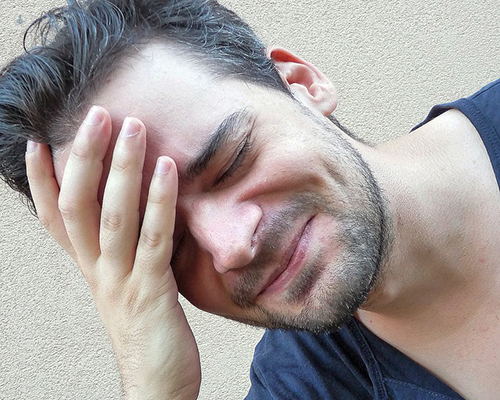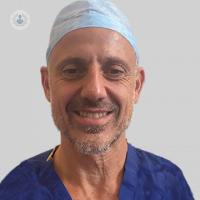What are cluster headaches?
Written by:Headaches are awful. We’ve all had them and they can really put a dampener on your day. However, some headaches are worse than others; some are downright debilitating. Without warning, excruciating pain erupts on one side of the head, often around the eye. If this sounds familiar, you may be getting cluster headaches. Leading neurosurgeon Mr Sinan Barazi, part of the London Neurosurgery Partnership, explains.

Generally described as attacks of extreme pain located on one side of the head, cluster headaches are among the most extreme types of headache. Cases are relatively rare, but the symptoms are severe, with sufferers often unable to keep still or concentrate during an attack. The pain is often concentrated around the eye.
Who gets cluster headaches?
Cluster headaches are most common in men, starting from their 30s or 40s, but can affect anyone, regardless of age and gender.
What are the symptoms?
Cluster headaches flare up suddenly, often waking people during the night and reaching full intensity within 5-10 minutes. The pain can be an intense piercing or burning sensation around the temple and eye, which sometimes radiates into the face. Patients suffer repeated attacks, usually on the same side.
The following symptoms often occur alongside the pain:
- Red and/or watery eye
- Blocked or runny nose
- Drooping eyelid
- Sweating or flushing
- Smaller pupil in one eye
Why do we get cluster headaches?
Frustratingly, no one is certain about what causes cluster headaches. A region of the brain called the hypothalamus appears to be involved. This is responsible for regulating hormones and maintaining body temperature. Cluster headaches frequently run in families, indicating a possible genetic link.
How often do cluster headaches happen?
As the name suggests, the headaches occur in “clusters” or bouts of 4-12 weeks, during which the patient experiences headaches daily; sometimes up to eight times a day in particularly bad bouts. The headaches often occur at around the same time every day. After each bout, patients usually remain symptom-free for months or even years, although bouts tend to occur at a similar time each year, most frequently in spring and autumn.
Do you need to seek medical advice?
If you are experiencing signs of a cluster headache, visit your doctor. They may refer you to a neurosurgeon or neurologist for blood tests or scans to rule out other possible causes. If cluster headaches are the problem, brain scans will generally look normal.
The most painful condition known to humankind?
Are there triggers for cluster headaches?
In some cases, certain things can trigger cluster headaches, such as:
- Smoking
- Alcohol
- Strong smells (e.g. perfume, petrol, etc.)
Avoiding these triggers may help in preventing cluster headaches.
For more information or to book an appointment visit Mr Sinan Barazi’s Top Doctors profile.


